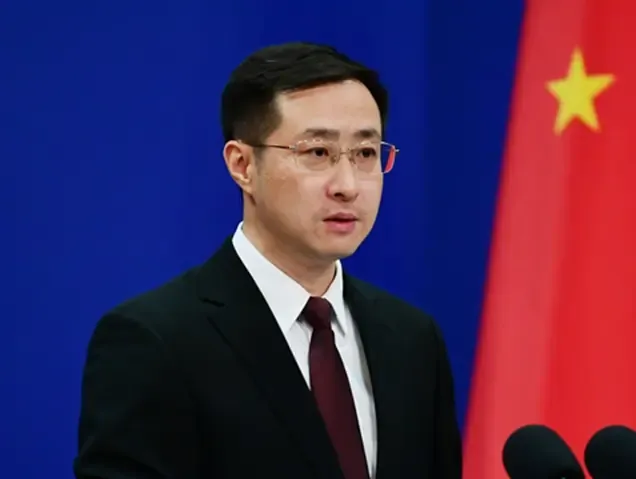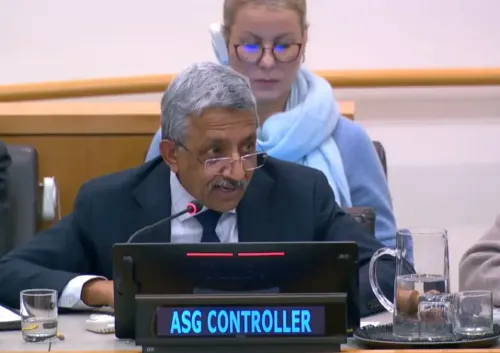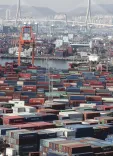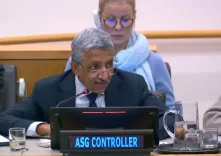China Criticizes US 'Reciprocal Tariffs' Impacting Global South Development

Synopsis
Key Takeaways
- The US's unilateral tariffs threaten Global South nations' development rights.
- Over 180 countries are impacted by these tariffs.
- China opposes US tariff abuse, emphasizing multilateralism.
- US policies exacerbate global wealth disparities.
- Development is a universal right, not a privilege.
Beijing, April 7 (NationPress) The unilateral enforcement of reciprocal tariffs by the United States is significantly hindering the developmental rights of nations, especially in the Global South, and is anticipated to encounter considerable backlash from the global community, according to a spokesperson from the Chinese Foreign Ministry on Monday.
Recently, the United States has enacted tariffs impacting all its trade partners, which includes over 180 countries and regions, among them several nations categorized as the least developed by the United Nations. Analysts indicate that these elevated tariffs will inflict an unparalleled and harsh toll on impoverished countries with basic economic frameworks and substantial reliance on exports.
In response to a related inquiry, Chinese Foreign Ministry spokesperson Lin Jian stated during a routine news conference that the United States, cloaked in the veil of reciprocity, has prioritized its own interests at the expense of other nations' rightful advantages. This strategy elevates America First above international standards, showcasing unilateralism, protectionism, and economic coercion.
Lin further noted that the Chinese government has articulated its stance against the misuse of tariffs by the US, clearly reflecting its serious position.
According to data analysis from the World Trade Organization, in the context of economic inequalities and uneven power relations, US tariff strategies will intensify the wealth divide among countries, with underdeveloped nations facing particularly harsh consequences, as reported by Xinhua news agency. This trend poses a serious threat to the initiatives aimed at fulfilling the United Nations 2030 Agenda for Sustainable Development, Lin remarked.
The US's implementation of varied tax rates contravenes the World Trade Organization's principle of non-discrimination, severely disrupting the established international economic and trade framework, along with the integrity and stability of global industrial and supply chains, Lin asserted. He added that this move significantly undermines the multilateral trading framework, poses a grave risk to the global economic recovery trajectory, and is destined to face widespread dissent from the international community.
Openness and cooperation represent a historical norm, while mutual benefit and win-win scenarios are the aspirations of humanity. Development is a universal entitlement for all nations, not a privilege reserved for a select few, stated Lin.
He emphasized that all nations should adhere to the principle of extensive dialogue, collaborative involvement, and shared gains, commit to authentic multilateralism, jointly oppose all forms of unilateralism and protectionism, and uphold an international system centered around the United Nations and a multilateral trading system led by the World Trade Organization.










